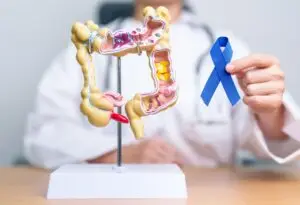Reviewed by Connie Casebolt, MD, MPH of Forum Health Greenville
If you’re having trouble in the bedroom that persists, such as: not feeling the urge, difficulty achieving an orgasm, or pain or discomfort during sex, you could be experiencing sexual dysfunction. We know these issues have a big impact on your life – luckily, there are many resources and solutions available. Here, we tackle the common causes, symptoms, and what the best treatment options are for you.
What is sexual dysfunction?
Sexual dysfunction is the persistent and recurring difficulty with sexual response, desire, orgasm, or pain. This can manifest as discomfort during sex, whether emotional, mental, or physical discomfort in or out of the bedroom. It can also include a lack of sexual desire, issues with reaching orgasm, or pain during sex that persists.
Sexual dysfunction in women represents almost half of the female population (43% to be exact), compared to only 31% of men. Although experiencing trouble in the bedroom may feel uncomfortable, disheartening, or tricky to talk about, it’s important to address it to regain your confidence and take control of your pleasure.
Symptoms of Sexual Dysfunction in Women
In order to understand sexual dysfunction in women, you need to look at it through the lens of its four major categories: disorders of sexual desire/interest, arousal, orgasm, and sexual pain.
- Disorders of sexual desire/interest: You have little to no sexual desire for your partner or feelings of participating in sexual activities.
- Disorders of arousal: Once you engage in sexual activities, you may not become aroused, lubricated, or be able to retain sexual arousal throughout being physically intimate with your partner.
- Disorders of orgasm: After being sufficiently aroused, you may find it difficult or near impossible to achieve an orgasm.
- Disorders of sexual pain: When being intimate, you may experience pelvic or vaginal pain associated with sexual stimulation.
Causes of Sexual Dysfunction in Women
Although it may feel distressing or uncomfortable, sexual dysfunction is very common in females and has many causes, from hormonal changes to psychological reasons (and more). Here’s a comprehensive list of the most common causes of sexual dysfunction in women:
- Pain or trauma to the pelvis or vulva: Vulvodynia, chronic pain affecting the labia, clitoris, and vaginal opening, is a common problem, as well as vulvar inflammatory conditions, vaginal burning, pain after childbirth or trauma, or other pain that affects a woman’s ability to enjoy being sexually intimate.
- Hormonal changes: Hormonal concerns, specifically related to perimenopause and menopause, can cause a slew of sexual concerns, such as burning, dryness, irritation, or pain during intercourse resulting from lower levels of estrogen, which cause less blood flow and sensitivity to the area. Breastfeeding or childbirth can also significantly alter hormones causing less interest in having sex.
- Medical conditions & medications: Certain medical conditions such as pelvic organ prolapse, vaginismus, and vaginal dryness can create issues around intimacy. Some antidepressants, blood pressure drugs, antihistamines, and chemotherapy drugs, can also decrease your sexual desire and your body’s ability to orgasm.
- Vaginal, Urinary, and Bowel Dysfunction: Women who experience urinary or bowel incontinence, as well as pelvic floor issues, may feel embarrassed, worried, or downright uninterested in sex due to other issues “down there”. This is especially prevalent for aging women (and postmenopausal women) or those who just gave birth.
- Psychological factors: Anxiety, depression, and unaddressed trauma (specifically sexual trauma), can contribute to sexual dysfunction, as well as cultural and religious beliefs (coming from yourself or your family/community).
- Mood & Emotional Issues Leading to Female Sexual Arousal Dysfunction: Depression, anxiety, trauma (especially sexual trauma), relationship issues, and other psychological concerns can greatly contribute to sexual dysfunction among women. This dysfunction can be broken down into three classifications: genital arousal disorder (when a woman feels pleasure in her mind but a lack of lubrication or swelling in her genitals), subjective arousal disorder (there is a genital response to sexual stimulation, but no mental clue that picks up on it), and combined arousal disorder (where both the genital and mental response to sexual stimulation are barely present or not present at all).
7 Most Common Sexual Problems in Women
When looking at sexual dysfunction in women, it’s smart to look at it through a multifaceted lens. There may be several factors contributing to your sexual dysfunction, or a cause you may not have considered. A recent study shows that abuse, sexually transmitted diseases, and self-esteem are three big associations to sexual dysfunction. Here are the seven most common sexual problems in women:
1. Inability to orgasm
Even if you’re fully aroused but cannot climax, this describes female orgasmic disorder and is the most common issue in sexual dysfunction among women. In a study, 9.2% of women were affected by this.
2. Low Libido
Low libido describes a decrease in sexual desire. Although it is common that sexual desire fluctuates over time (and throughout your life), if you notice a prolonged, persistent low sex drive, it is cause for concern and may indicate sexual dysfunction.
3. Genitourinary syndrome of menopause (GSM)
GSM describes various menopausal symptoms that include genital and sexual dysfunction (such as dryness, burning or irritation, or lack of lubrication or pain), that can greatly interfere with sex. Women with vulvovaginal symptoms of GSM are likely to experience sexual dysfunction because of dyspareunia, decreased lubrication, and pain/bleeding during and after intercourse. Not producing enough natural vaginal lubricant is a big cause of sexual issues. Other factors such as surgery, medical procedures, medications, or even stress could contribute to the issue.
4. Lack of sensitivity
Changes in estrogen levels, particularly post-childbirth or during the stages of menopause, can decrease blood flow to the genitals, creating desensitization of the area, making it much harder to achieve arousal and climax.
5. Drug and alcohol-related sexual dysfunction
Certain medications can create side effects of low libido or other sexual dysfunction issues. These include some high blood pressure medications, antidepressants, steroids, and certain cancer drugs.
6. Muscular issues
Vaginismus is a painful fear reaction where the vagina spasms upon anything penetrating it. Other issues, such as pelvic floor dysfunction or trauma-related issues, may prohibit the body from fully relaxing and opening up to sex.
7. Painful intercourse
Dyspareunia, the medical term that describes pain during sex, refers to discomfort that can happen before, during, or after sex that can happen in the vulva or deeper in the pelvis.
Diagnosis and Tests
How is Sexual Dysfunction Diagnosed?
If you or a loved one are experiencing any signs of sexual dysfunction, it’s important to talk to your doctor. Your healthcare provider may ask about your sexual and medical history, perform a pelvic exam, and take any necessary tests, including a blood test that could rule out any underlying health issues contributing to your sexual dysfunction.
How to Address Sexual Dysfunction
If you’re a woman experiencing sexual dysfunction, there are many ways to address the issue. Learn more about sexual dysfunction and how Forum Health’s sexual health treatments like bioidentical hormone replacement therapy can help you regain your confidence in the bedroom.
We offer both a whole-body approach with targeted solutions, customized to your unique needs and health concerns. Our advanced tests and treatments such as vaginal rejuvenation, pellet hormone therapy, FemiWave Shockwave Therapy, Dietary Supplements & Nutraceuticals, promise to improve your libido, your orgasms, and your sex life – so you can experience life fully.
FAQs
Some of the most common sexual problems for women include the inability to orgasm, issues with getting aroused and staying aroused, vaginal dryness, incontinence, lack of sensitivity in the genital region, muscular issues, painful intercourse, and drug-and alcohol-related issues.
If you feel discomfort or concern around your sex life, which could include fear, pain, or emotional issues around sex, you may want to address the issue and seek help from a professional.
Feeling a low desire for sex, as well as experiencing Genitourinary Syndrome of Menopause (GSM), where women feel various symptoms of sexual dysfunction such as vaginal dryness, is one of the leading causes of sexual dysfunction in postmenopausal women.
Sexual dysfunction is very common, especially for women. Sexual dysfunction in women represents almost half of the female population (43% to be exact), compared to only 31% of men.
It’s important to consult with a doctor if you’re experiencing any symptoms of sexual dysfunction. They will ask questions and recommend tests to rule out any underlying health issues or recommend counseling or other exercises to help you get back on track.
There are many causes of sexual dysfunction in females, including pain or trauma to the pelvic area (that includes childbirth), hormonal changes that typically come with age or pregnancy and post-childbirth, medical conditions or medications, and psychological factors.






